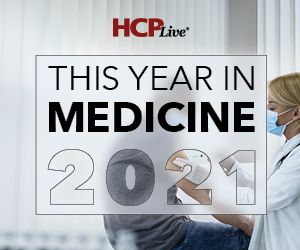Video
The Past, Present, and Future of HIV Management
Peter L. Salgo, MD: This brings our discussion to a conclusion. I’ve got to tell you, it’s been fascinating. What I think we’re going to do is we’re going to go once around the table and give each of you one last chance to get your word in without being interrupted by anybody else. Dr Daar, why don’t you start?
Eric S. Daar, MD: Sure. It’s hard to add to what we’ve already talked about. I think, clearly, probably the biggest advances over the last several years is the realization that therapy works, it works in everybody, and everybody benefits from it. We didn’t specifically talk about why we recommend treatment to everybody, but it’s to prevent transmission.
We know that HIV viremia has adverse effects throughout the body, including on other organs like the heart, the liver, the kidneys, and the brain. And we also have randomized, controlled trials that demonstrate that even people with high T-cells have a true clinical benefit associated with early therapy. So, for all of those reasons, early therapy matters.
And the only reason that we’re able to even have this discussion is because of the advances in treatment. If we were still treating people with the drugs of 1995 or 1996, none of this would matter. Those drugs were impossible to take, they made people sick, and when they failed, they failed with resistance and had no options. We’re not there anymore.
Peter L. Salgo, MD: Dr Eron?
Joseph Eron, MD: I think one of the things we haven’t talked about that much is one of the biggest problems in HIV: getting people into care and retaining them in care. Everything that Eric said is true, but if you’re not in care and you can’t stand care for whatever reason (eg, chaos, depression, substance use, serious mental illness), you won’t reap these benefits. And we know that they talk about these cascades. Probably, only 40% of the people in the US, some number like that, are actually suppressed on therapy. Maybe it’s higher than that?
Paul E. Sax, MD: Yes, probably.
Joseph Eron, MD: It’s probably higher, but it’s not much more than 50%.
Paul E. Sax, MD: It’s not 80%.
Joseph Eron, MD: It’s not 80%. So, essentially, half of the population isn’t reaping the benefits that Eric just talked about. So I think that’s a critical point.
Peter L. Salgo, MD: Dr Frank?
Ian Frank, MD: Another thing we haven’t spoken about is that for people who are even doing well on therapy, HIV patients still have a slightly increased risk for cardiovascular disease and a slightly increased risk for non-AIDS related malignancies. And it’s important for HIV-infected individuals to understand that it’s just not about their HIV anymore. We need to make sure that their blood pressure is well controlled, their diabetes is well controlled, they don’t smoke, and they get screened for malignancies the way people who don’t have HIV get screened. A lot of folks with HIV still think that HIV is their most serious medical problem, and it may not be anymore. They need to adhere, as effectively, to all of their other therapies as they do their HIV treatment.
Peter L. Salgo, MD: Dr Sax?
Paul E. Sax, MD: One area of HIV research, which is in its infancy, as opposed to therapeutics (which is advanced), is the cure research. We haven’t talked at all about that. HIV can’t be cured. If these medications are stopped, virus rebounds. It’s interesting. We would think, sometimes, that patients aren’t interested in this cure because they’re just taking a couple of pills a day, their viral load is suppressed, and they’re healthy. But, in fact, when you ask them, they are incredibly interested in the idea of eradicating the virus from their body just in the same way we can now, so miraculously, with hepatitis C. So, I think that’s going to be the areas that are most exciting in the next 5 to 10 to 20 years, as well as the incremental advances in therapy.
Peter L. Salgo, MD: Well, I want to thank all of you for being here. I think it is worth pointing out, as our viewers probably know, this is a discussion we wouldn’t have had 15 years ago. This landscape has completely changed. It has been thrilling. It has been a privilege to be a part of a profession that’s seeing this kind of a change, and I just hope that you understand the excitement. I want to thank you for joining us, and I hope you join us next time. I’m Dr Peter Salgo.
Transcript edited for clarity.





